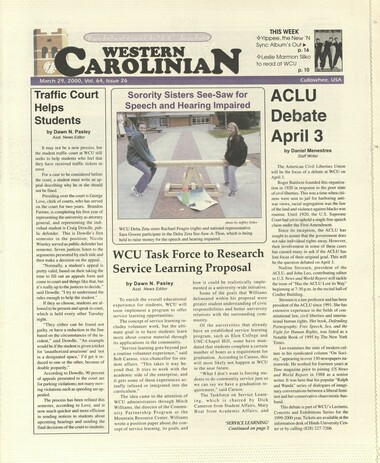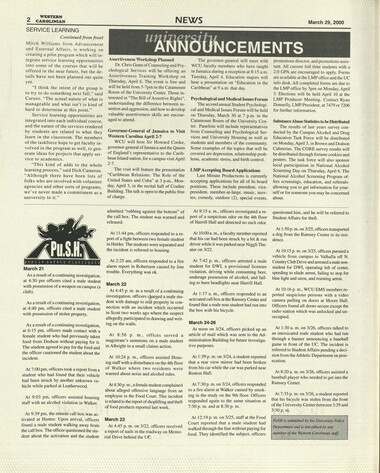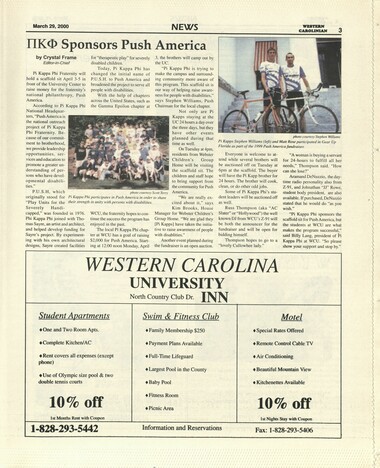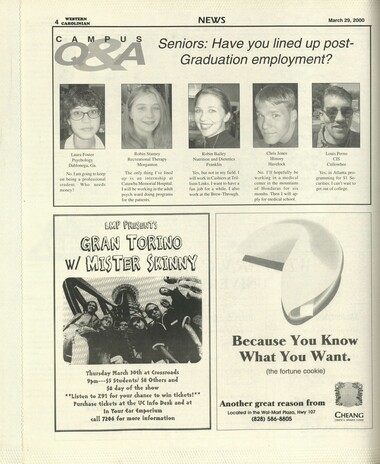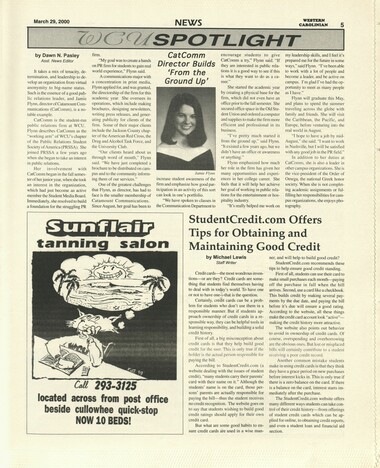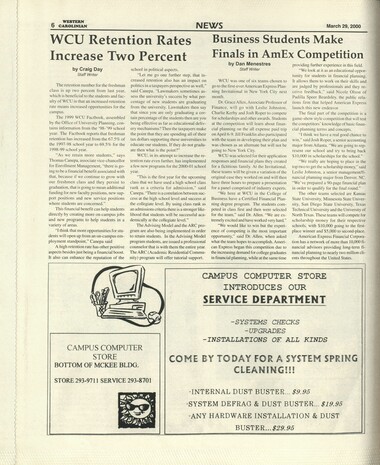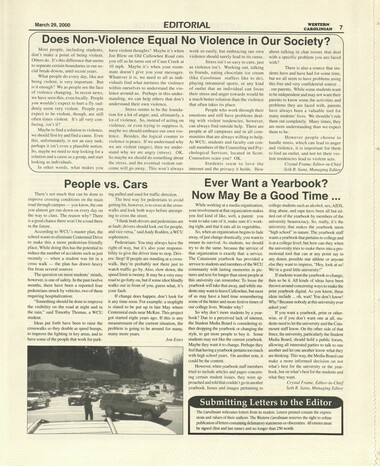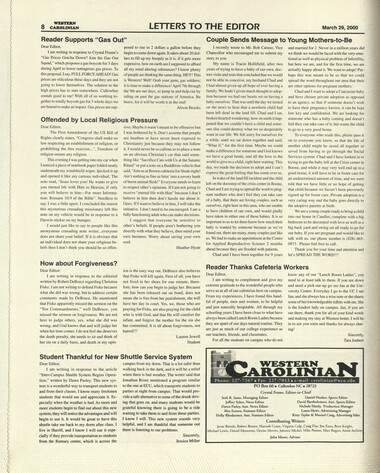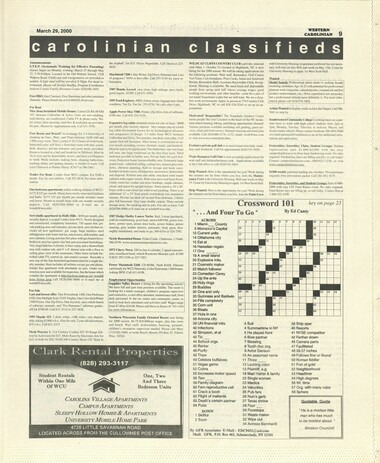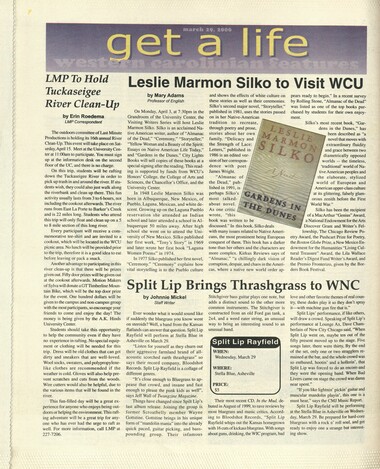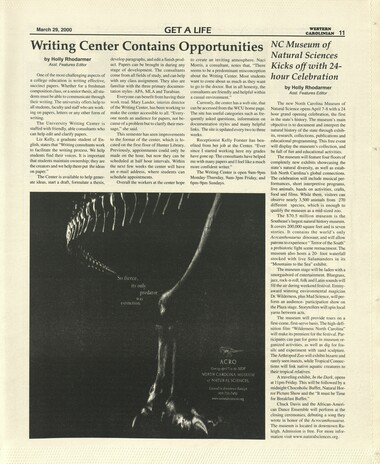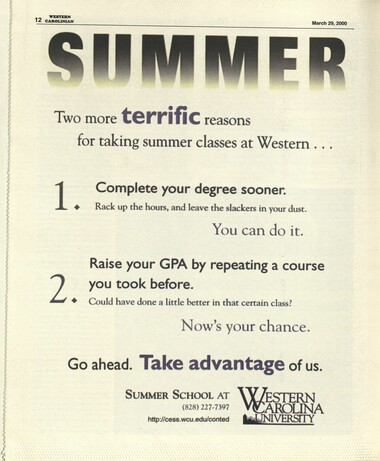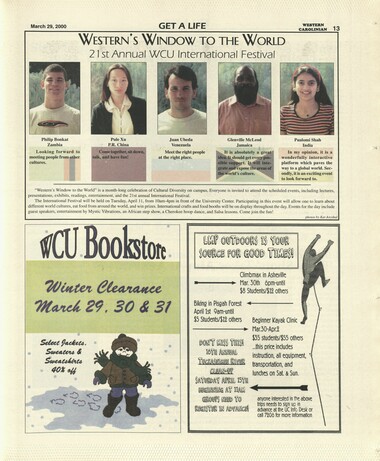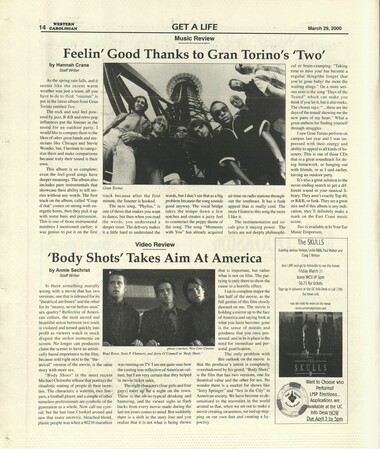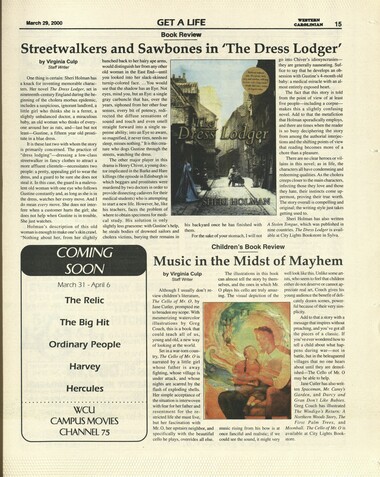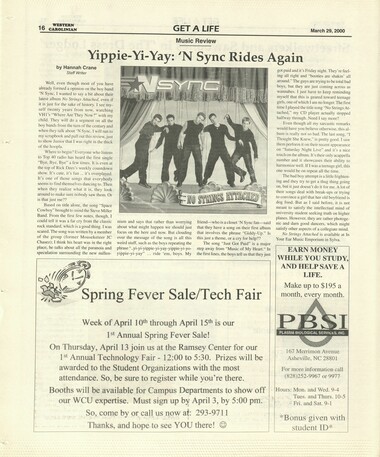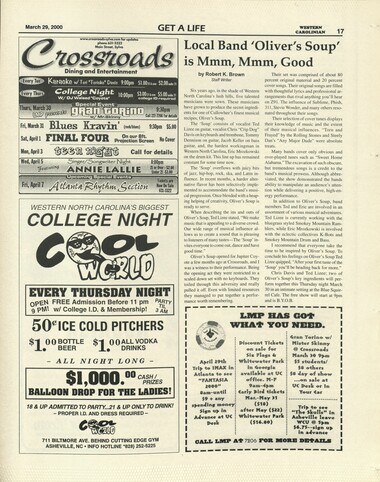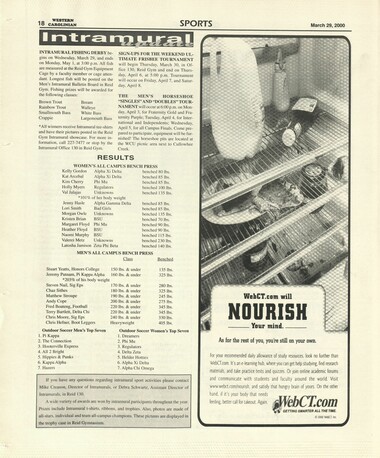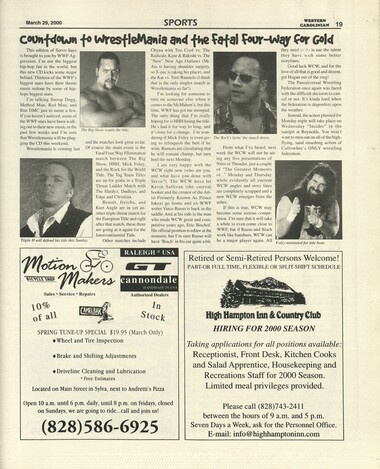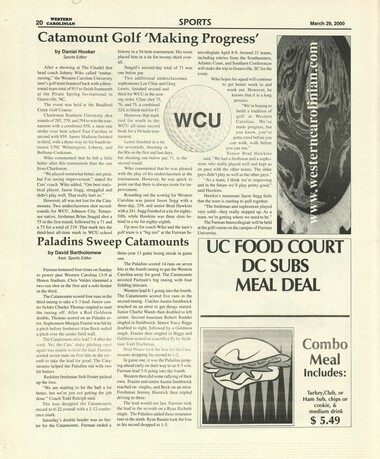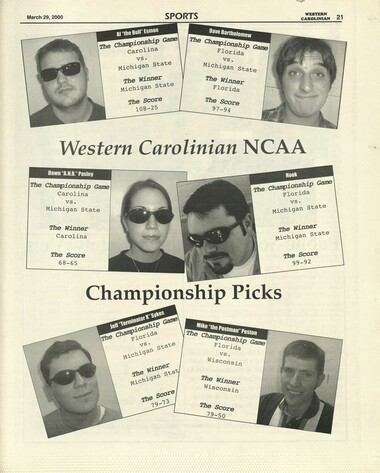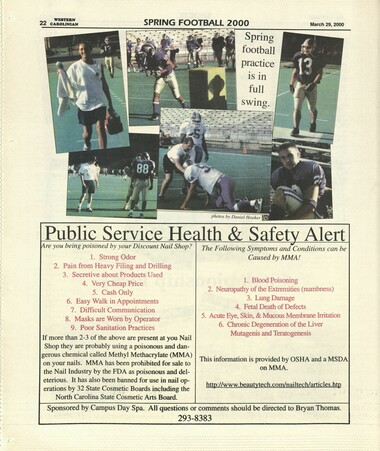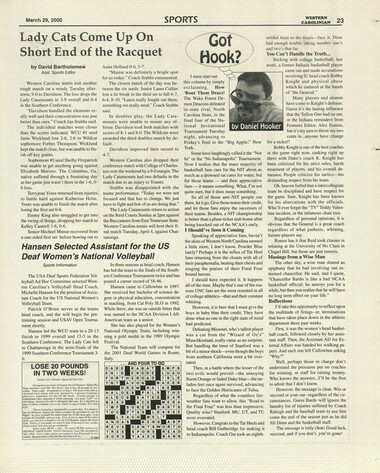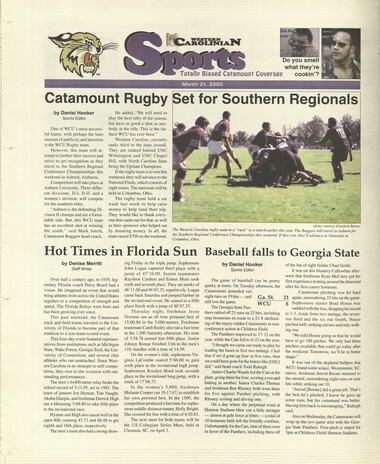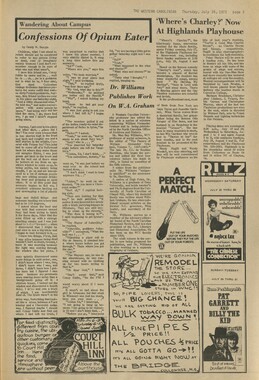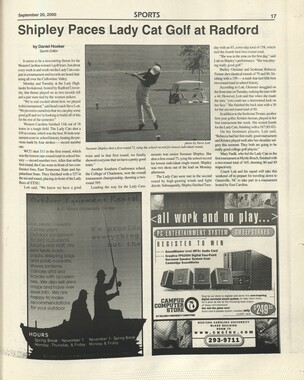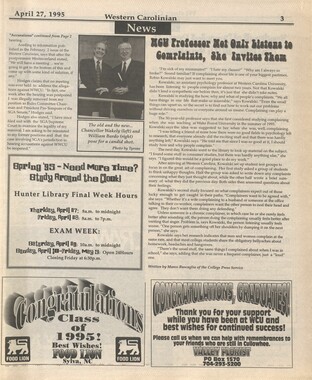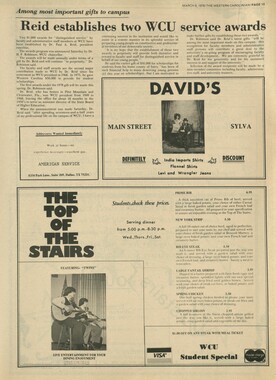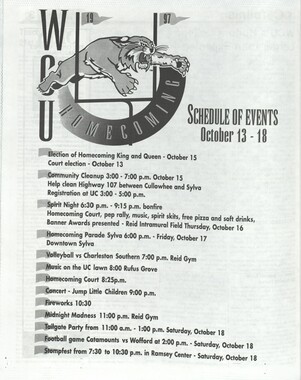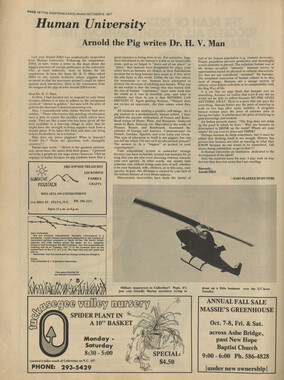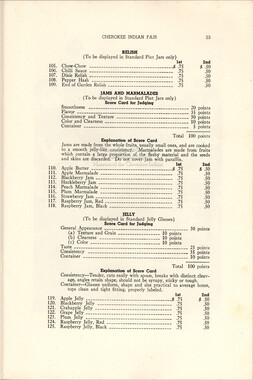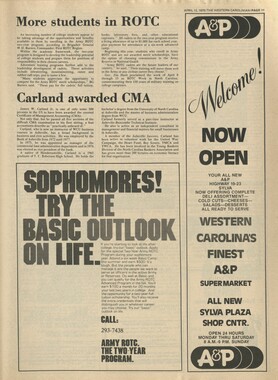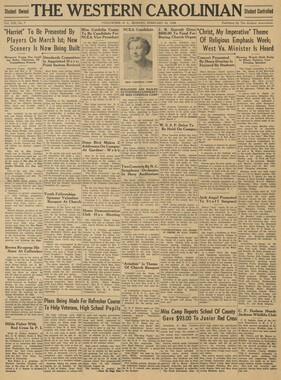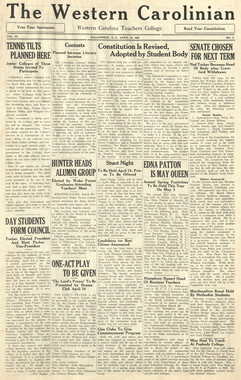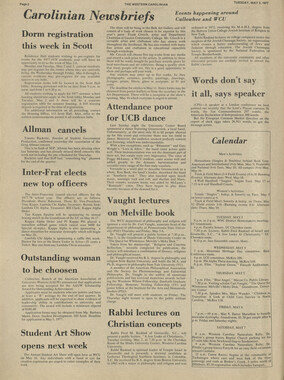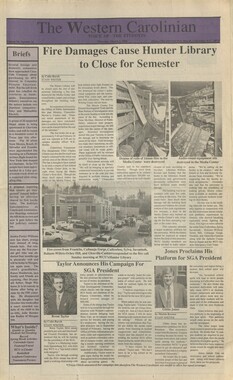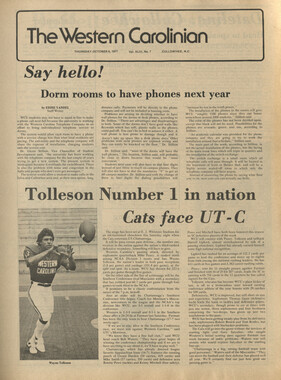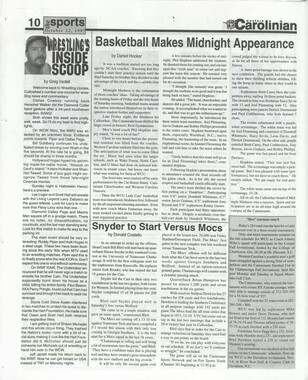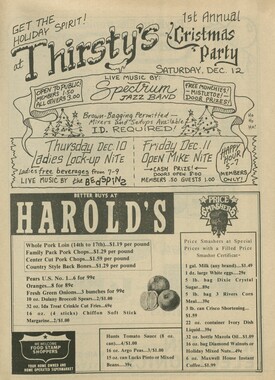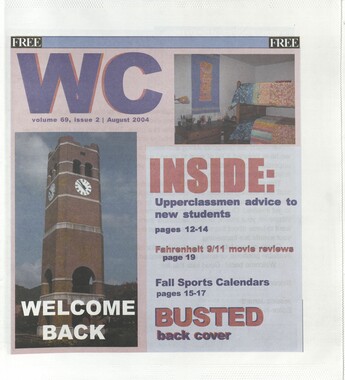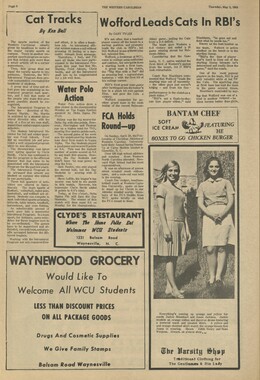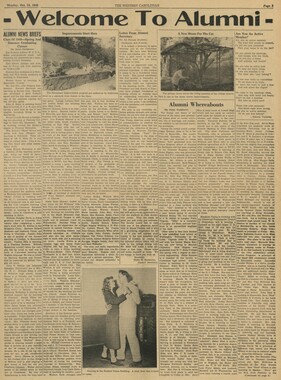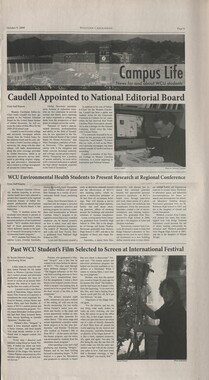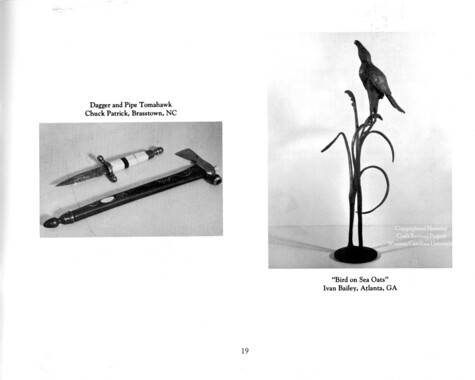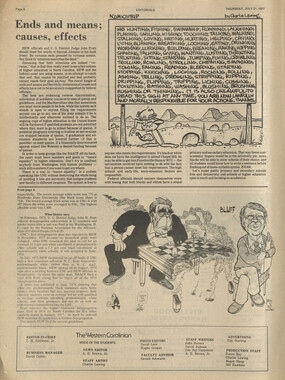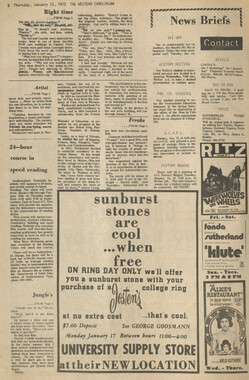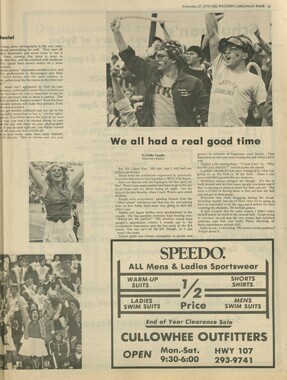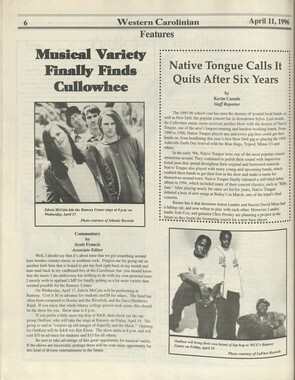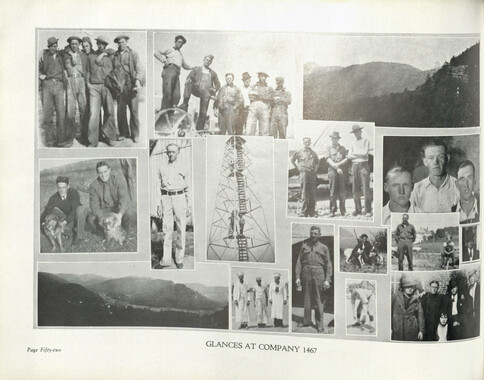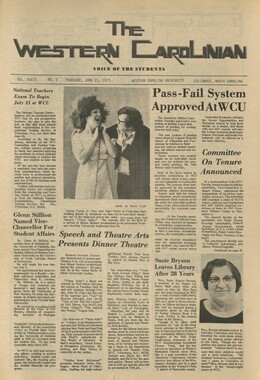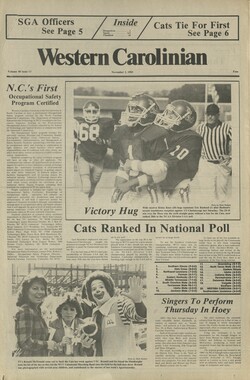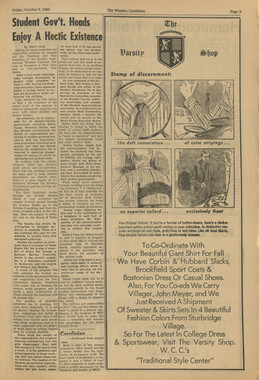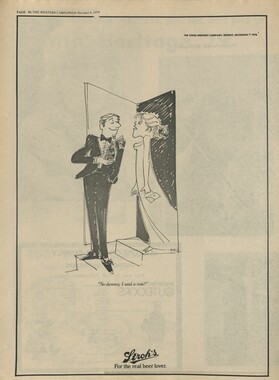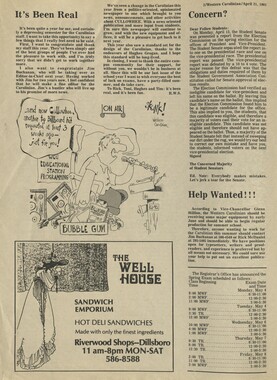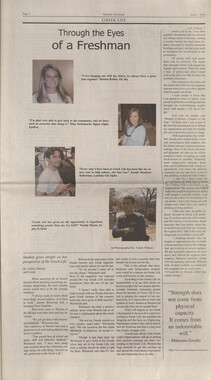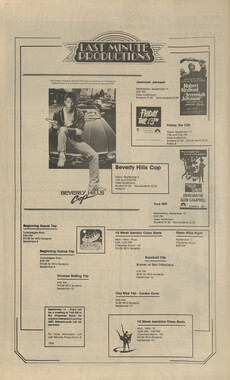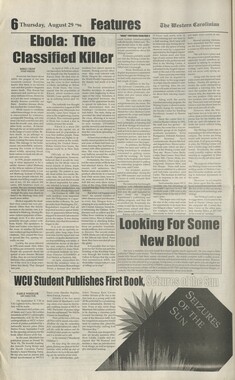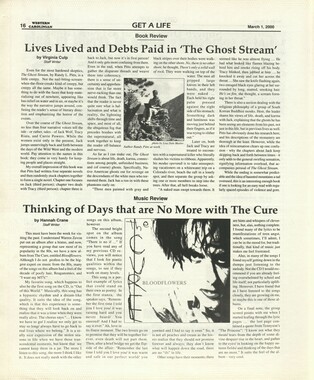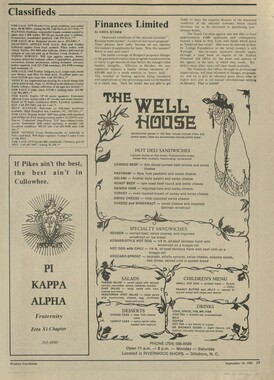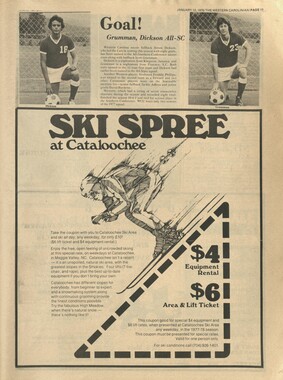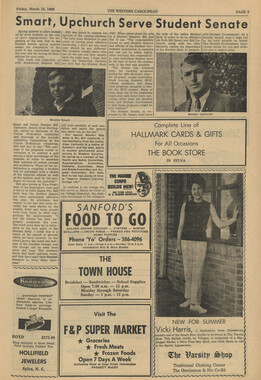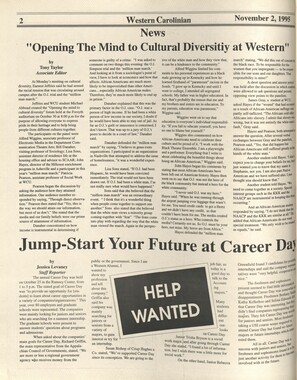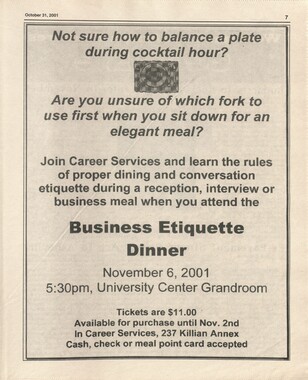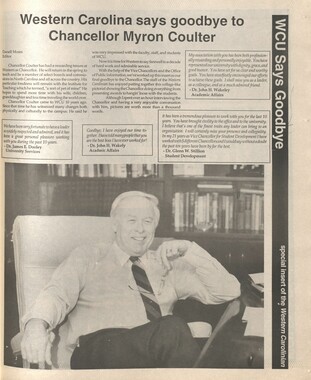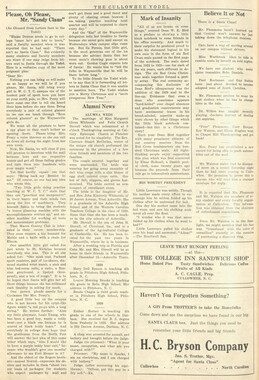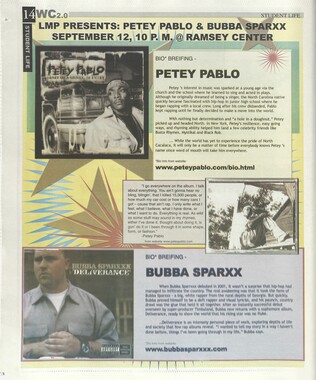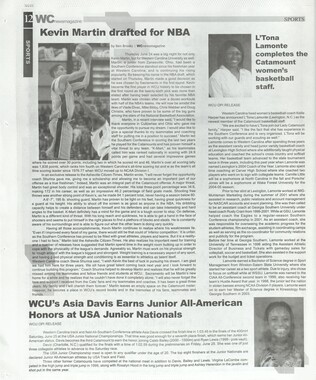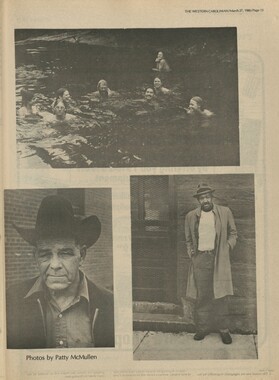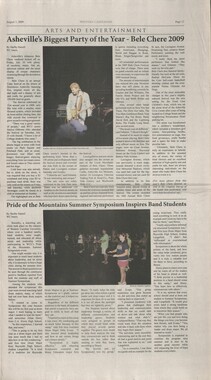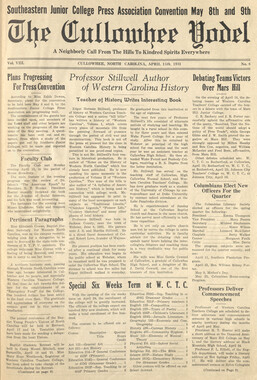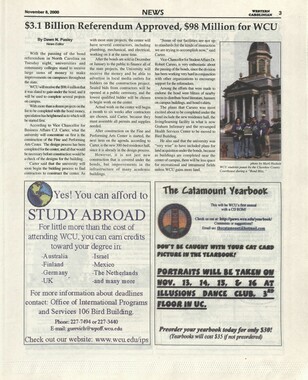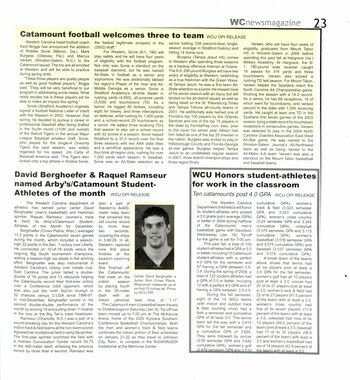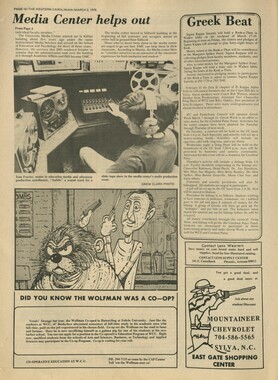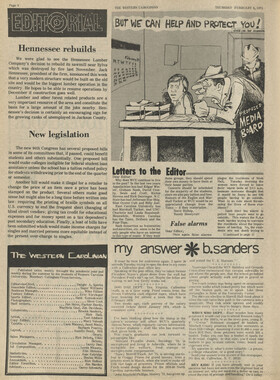Western Carolina University (21)
View all
- Canton Champion Fibre Company (2308)
- Cherokee Traditions (291)
- Civil War in Southern Appalachia (165)
- Craft Revival (1942)
- George Masa Collection (137)
- Great Smoky Mountains - A Park for America (3080)
- Highlights from Western Carolina University (422)
- Horace Kephart (998)
- Journeys Through Jackson (159)
- LGBTQIA+ Archive of Jackson County (90)
- Oral Histories of Western North Carolina (318)
- Picturing Appalachia (6617)
- Stories of Mountain Folk (413)
- Travel Western North Carolina (153)
- Western Carolina University Fine Art Museum Vitreograph Collection (129)
- Western Carolina University Herbarium (92)
- Western Carolina University: Making Memories (738)
- Western Carolina University Publications (2491)
- Western Carolina University Restricted Electronic Theses and Dissertations (146)
- Western North Carolina Regional Maps (71)
- World War II in Southern Appalachia (131)
University of North Carolina Asheville (6)
View all
- Allanstand Cottage Industries (62)
- Appalachian National Park Association (53)
- Bennett, Kelly, 1890-1974 (1463)
- Berry, Walter (76)
- Brasstown Carvers (40)
- Carver, George Washington, 1864?-1943 (26)
- Cathey, Joseph, 1803-1874 (1)
- Champion Fibre Company (233)
- Champion Paper and Fibre Company (297)
- Cherokee Indian Fair Association (16)
- Cherokee Language Program (22)
- Crowe, Amanda (40)
- Edmonston, Thomas Benton, 1842-1907 (7)
- Ensley, A. L. (Abraham Lincoln), 1865-1948 (275)
- Fromer, Irving Rhodes, 1913-1994 (70)
- George Butz (BFS 1907) (46)
- Goodrich, Frances Louisa (120)
- Grant, George Alexander, 1891-1964 (96)
- Heard, Marian Gladys (60)
- Kephart, Calvin, 1883-1969 (15)
- Kephart, Horace, 1862-1931 (313)
- Kephart, Laura, 1862-1954 (91)
- Laney, Gideon Thomas, 1889-1976 (439)
- Masa, George, 1881-1933 (61)
- McElhinney, William Julian, 1896-1953 (44)
- Niggli, Josephina, 1910-1983 (10)
- North Carolina Park Commission (105)
- Osborne, Kezia Stradley (9)
- Owens, Samuel Robert, 1918-1995 (11)
- Penland Weavers and Potters (36)
- Roberts, Vivienne (15)
- Roth, Albert, 1890-1974 (142)
- Schenck, Carl Alwin, 1868-1955 (1)
- Sherrill's Photography Studio (2565)
- Southern Highland Handicraft Guild (127)
- Southern Highlanders, Inc. (71)
- Stalcup, Jesse Bryson (46)
- Stearns, I. K. (213)
- Thompson, James Edward, 1880-1976 (226)
- United States. Indian Arts and Crafts Board (130)
- USFS (683)
- Vance, Zebulon Baird, 1830-1894 (1)
- Weaver, Zebulon, 1872-1948 (58)
- Western Carolina College (230)
- Western Carolina Teachers College (282)
- Western Carolina University (2008)
- Western Carolina University. Mountain Heritage Center (18)
- Whitman, Walt, 1819-1892 (10)
- Wilburn, Hiram Coleman, 1880-1967 (73)
- Williams, Isadora (3)
- Cain, Doreyl Ammons (0)
- Crittenden, Lorraine (0)
- Rhodes, Judy (0)
- Smith, Edward Clark (0)
- Appalachian Region, Southern (3032)
- Asheville (N.C.) (1945)
- Avery County (N.C.) (26)
- Blount County (Tenn.) (195)
- Buncombe County (N.C.) (1680)
- Cherokee County (N.C.) (283)
- Clay County (N.C.) (556)
- Graham County (N.C.) (238)
- Great Smoky Mountains National Park (N.C. and Tenn.) (535)
- Haywood County (N.C.) (3573)
- Henderson County (N.C.) (70)
- Jackson County (N.C.) (4926)
- Knox County (Tenn.) (35)
- Knoxville (Tenn.) (13)
- Lake Santeetlah (N.C.) (10)
- Macon County (N.C.) (421)
- Madison County (N.C.) (216)
- McDowell County (N.C.) (39)
- Mitchell County (N.C.) (135)
- Polk County (N.C.) (35)
- Qualla Boundary (982)
- Rutherford County (N.C.) (78)
- Swain County (N.C.) (2185)
- Transylvania County (N.C.) (270)
- Watauga County (N.C.) (12)
- Waynesville (N.C.) (86)
- Yancey County (N.C.) (72)
- Aerial Photographs (3)
- Aerial Views (60)
- Albums (books) (4)
- Articles (1)
- Artifacts (object Genre) (228)
- Bibliographies (1)
- Biography (general Genre) (2)
- Cards (information Artifacts) (38)
- Clippings (information Artifacts) (193)
- Copybooks (instructional Materials) (3)
- Crafts (art Genres) (622)
- Depictions (visual Works) (21)
- Design Drawings (1)
- Digital Moving Image Formats (2)
- Drawings (visual Works) (185)
- Envelopes (115)
- Exhibitions (events) (1)
- Facsimiles (reproductions) (1)
- Fiction (general Genre) (4)
- Financial Records (12)
- Fliers (printed Matter) (67)
- Glass Plate Negatives (381)
- Guidebooks (2)
- Internegatives (10)
- Interviews (823)
- Land Surveys (102)
- Letters (correspondence) (1070)
- Manuscripts (documents) (618)
- Maps (documents) (177)
- Memorandums (25)
- Minutes (administrative Records) (59)
- Negatives (photographs) (6090)
- Newsletters (1290)
- Newspapers (2)
- Notebooks (8)
- Occupation Currency (1)
- Paintings (visual Works) (1)
- Pen And Ink Drawings (1)
- Periodicals (194)
- Personal Narratives (10)
- Photographs (12977)
- Plans (maps) (1)
- Poetry (6)
- Portraits (4568)
- Postcards (329)
- Programs (documents) (181)
- Publications (documents) (2444)
- Questionnaires (65)
- Relief Prints (26)
- Sayings (literary Genre) (1)
- Scrapbooks (282)
- Sheet Music (2)
- Slides (photographs) (402)
- Songs (musical Compositions) (2)
- Sound Recordings (802)
- Specimens (92)
- Speeches (documents) (18)
- Tintypes (photographs) (8)
- Transcripts (329)
- Text Messages (0)
- A.L. Ensley Collection (275)
- Appalachian Industrial School Records (7)
- Appalachian National Park Association Records (336)
- Axley-Meroney Collection (2)
- Bayard Wootten Photograph Collection (20)
- Bethel Rural Community Organization Collection (7)
- Blumer Collection (5)
- C.W. Slagle Collection (20)
- Canton Area Historical Museum (2110)
- Carlos C. Campbell Collection (462)
- Cataloochee History Project (64)
- Cherokee Studies Collection (4)
- Daisy Dame Photograph Album (5)
- Daniel Boone VI Collection (1)
- Doris Ulmann Photograph Collection (112)
- Elizabeth H. Lasley Collection (1)
- Elizabeth Woolworth Szold Fleharty Collection (4)
- Frank Fry Collection (95)
- George Masa Collection (173)
- Gideon Laney Collection (452)
- Hazel Scarborough Collection (2)
- Hiram C. Wilburn Papers (28)
- Historic Photographs Collection (236)
- Horace Kephart Collection (861)
- Humbard Collection (33)
- Hunter and Weaver Families Collection (1)
- I. D. Blumenthal Collection (4)
- Isadora Williams Collection (4)
- Jesse Bryson Stalcup Collection (47)
- Jim Thompson Collection (224)
- John B. Battle Collection (7)
- John C. Campbell Folk School Records (80)
- John Parris Collection (6)
- Judaculla Rock project (2)
- Kelly Bennett Collection (1482)
- Love Family Papers (11)
- Major Wiley Parris Civil War Letters (3)
- Map Collection (12)
- McFee-Misemer Civil War Letters (34)
- Mountain Heritage Center Collection (4)
- Norburn - Robertson - Thomson Families Collection (44)
- Pauline Hood Collection (7)
- Pre-Guild Collection (2)
- Qualla Arts and Crafts Mutual Collection (12)
- R.A. Romanes Collection (681)
- Rosser H. Taylor Collection (1)
- Samuel Robert Owens Collection (94)
- Sara Madison Collection (144)
- Sherrill Studio Photo Collection (2558)
- Smoky Mountains Hiking Club Collection (616)
- Stories of Mountain Folk - Radio Programs (374)
- The Reporter, Western Carolina University (510)
- Venoy and Elizabeth Reed Collection (16)
- WCU Gender and Sexuality Oral History Project (36)
- WCU Mountain Heritage Center Oral Histories (25)
- WCU Oral History Collection - Mountain People, Mountain Lives (71)
- WCU Students Newspapers Collection (1923)
- Western North Carolina Tomorrow Black Oral History Project (69)
- William Williams Stringfield Collection (2)
- Zebulon Weaver Collection (109)
- African Americans (390)
- Appalachian Trail (35)
- Artisans (521)
- Cherokee art (84)
- Cherokee artists -- North Carolina (10)
- Cherokee language (21)
- Cherokee pottery (101)
- Cherokee women (208)
- Church buildings (190)
- Civilian Conservation Corps (U.S.) (111)
- College student newspapers and periodicals (2012)
- Dams (108)
- Dance (1023)
- Education (222)
- Floods (63)
- Folk music (1015)
- Forced removal, 1813-1903 (2)
- Forest conservation (220)
- Forests and forestry (1198)
- Gender nonconformity (4)
- Great Smoky Mountains National Park (N.C. and Tenn.) (181)
- Hunting (47)
- Landscape photography (25)
- Logging (122)
- Maps (83)
- Mines and mineral resources (9)
- North Carolina -- Maps (18)
- Paper industry (38)
- Postcards (255)
- Pottery (135)
- Railroad trains (72)
- Rural electrification -- North Carolina, Western (3)
- School integration -- Southern States (2)
- Segregation -- North Carolina, Western (5)
- Slavery (5)
- Sports (452)
- Storytelling (243)
- Waterfalls -- Great Smoky Mountains (N.C. and Tenn.) (66)
- Weaving -- Appalachian Region, Southern (280)
- Wood-carving -- Appalachian Region, Southern (328)
- World War, 1939-1945 (174)
Western Carolinian Volume 64 (65) Number 26
Item
Item’s are ‘child’ level descriptions to ‘parent’ objects, (e.g. one page of a whole book).
-
-
o WMWW9 jyini?n m.T ▼VlL9lJc#tiM AROLINIAIN THIS WEEK ^Yippee, the New *N Sync Album's Out ► p. 16 4-Leslie Marmon Silko to read at WCU p. 10 March 29, 2000, Vol. 64, Issue 26 Traffic Court Helps Students by Dawn N. Pasley Asst. News Editor It may not be a new process, but the student traffic court at WCU still seeks to help students who feel that they have received traffic tickets in error. For a case to be considered before the court, a student must write an appeal describing why he or she should not be fined. Presiding over the court is George Love, clerk of courts, who has served on the court for two years. Brandon Farmer, is completing his first year of representing the university as attorney general, and representing the individual student is Craig Dowdle, public defender. This is Dowdle's first semester in the position; Nicole Winsley served as public defender last semester. Seven justices listen to the arguments presented by each side and then make a decision on the appeal. "Normally, a student's appeal is pretty valid, based on their taking the time to fill out an appeals form and come to court and things like that, but it's really up to the justices to decide," said Dowdle. "I try to understand the rules enough to help the student." If they so choose, students are allowed to be present and speak in court, which is held every other Tuesday night. "They either can be found not guilty, or have a reduction in the fine based on the circumstances of the incident," said Dowdle. "An example would be if the student is given a ticket for 'unauthorized area/zone' and 'not in a designated space,' I'd get it reduced to one or the other, because of double jeopardy." According to Dowdle, 90 percent of appeals presented to the court are for parking violations; not many moving violations such as speeding are appealed. The process has been refined this semester, according to Love, and is now much quicker and more efficient in sending notices to students about upcoming hearings and sending the final decisions of the court to students. Sorority Sisters See-Saw for Speech and Hearing Impaired photo by Jeffrey Sykes WCU Delta Zeta sister Rachael Feagin (right) and national representative Sara Groom participate in the Delta Zeta See-Saw-A-Thon, which is being held to raise money for the speech and hearing impaired. V ' WCU Task Force to Research Service Learning Proposal by Dawn N. Pasley Asst. News Editor To enrich the overall educational experience for students, WCU will soon implement a program to offer service learning opportunities. The concept of service learning includes volunteer work, but the ultimate goal is to have students learn more about course material through its applications in the community. "Service learning goes beyond just a routine volunteer experience," said Bob Caruso, vice-chancellor for student affairs. "This takes it way beyond that. It tries to work with the academic side of the enterprise, and it gets some of these experiences actually infused or integrated into the curriculum." The idea came to the attention of WCU administrators through Mitch Williams, the director of the Community Partnership Program at the Mountain Resource Center. Williams wrote a position paper about the concept of service learning, its goals, and how it could be realistically implemented as a university-wide initiative. Some of the goals that Williams delineated within his proposal were greater student understanding of civic responsibilities and better university relations with the surrounding community. Of the universities that already have an established service learning program, such as Elon College and UNC-Chapel Hill, some have mandated that students complete a certain number of hours as a requirement for graduation. According to Caruso, this will most likely not happen at WCU in the near future. "What I don't want is forcing students to do community service just so we can say we have a graduation requirement," said Caruso. The Taskforce on Service Learning, which is chaired by Dick Cameron from Student Affairs, Mary Boat from Academic Affairs, and 'SERVICE LEARNING' Continued on page 2 Cullowhee, USA ACLU Debate April 3 by Daniel Menestres Staff Writer The American Civil Liberties Union will be the focus of a debate at WCU on April 3. Roger Baldwin founded this organization in 1920 in response to the poor state of civil liberties. This was a time when citizens were sent to jail for harboring antiwar views, racial segregation was the law of the land and violence against blacks was routine. Until 1920, the U.S. Supreme Court had yet to uphold a single free speech claim under the First Amendment. Since its inception, the ACLU has sought to assure that the government does not take individual rights away. However, their involvement in some of these cases has caused many to ask if the ACLU has lost focus of their original goal. This will be the question debated on April 3. Nadine Strossen, president of the ACLU, and John Leo, contributing editor to U.S. News and World Report will tackle the issue of "Has the ACLU Lost its Way" beginning at 7:30 p.m. in the recital hall of Coulter Building. Strossen is a law professor and has been president of the ACLU since 1991. She has extensive experience in the fields of constitutional law, civil liberties and international human rights. Her book, Defending Pornography: Free Speech, Sex, and the Fight for Human Rights, was listed as a Notable Book of 1995 by The New York Times. Leo examines the state of modern culture in his syndicated column "On Society," appearing in over 150 newspapers nationwide. He worked for fourteen years at Time magazine prior to joining US News and World Report in 1988 as a senior writer. It was here that his popular "Ralph and Wanda" series of dialogues of imaginary conversations between a liberal feminist and her conservative chauvinistic husband. This debate is part of WCU's Lectures, Concerts and Exhibitions Series for the 1999-2000 year. Tickets are available at the information desk of Hinds University Center or by calling (828) 227-7206.
Object
Object’s are ‘parent’ level descriptions to ‘children’ items, (e.g. a book with pages).
-
The Western Carolinian is Western Carolina University's student-run newspaper. The paper was published as the Cullowhee Yodel from 1924 to 1931 before changing its name to The Western Carolinian in 1933.
-
